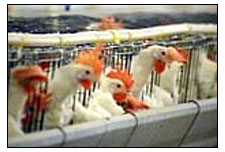There is going to be a tax on properties with scenic views according to reports. The Labour government is proposing to tax homes with sea views, or those located in serene surroundings like hills, mountains, lakes or rivers. Even a golf course in the vicinity would attract the tax.
The additional tax will become applicable to homes with a specified number of rooms than the usual average, with large gardens, roof terraces or balconies. The proposal is expected to be part of a revaluation of each of the properties in England, the first after such a revaluation done 1991. Officials undertaking the groundwork for the revaluation have been instructed to get data on these aspects.
It is understood that deputy prime minister John Prescott’s office has prepared documentation on the proposal. Media reports indicated that the Valuation Office Agency has a “new computer-assisted mass appraisal system” to help officials obtain specific details on every property in England.
MeanWhile, the Conservatives have criticised the plan. Caroline Spelman, Conservative local government spokesman, alleged that the government is preparing a stealth tax on the middle classes. She revealed that the plan has “value significance codes” covering 66 features and the government had spent 45 million pounds on the computer system.
The government had postponed the revaluation, which was due in 2007 to 2010 because it feared a backlash over higher council tax bills. The M.P.s are now discussing plans for the revaluation.
According to the proposal, factors like a sea view will have a bearing if these have a significant influence on the overall value of the property. A swimming pool or tennis court along with views of the sea, hills, mountains, lakes or rivers, may attract the proposed tax, according to sources.
The council tax is now structured on eight bands, with the top-rung H band property holders paying twice as much as people on D band. A study of a revaluation exercise done in Wales last year will suggest that owners of D band property in England may be levied an extra 267 pounds on their bill if they go up one band and 534 pounds if they go up two bands.
The 1991 valuation fixed the value of a D band property at between 68,001 pounds and 88,000 pounds. Homes in other bands get bills, which are proportionately higher or lower.



 Bitcoin
Bitcoin  Ethereum
Ethereum  Tether
Tether  XRP
XRP  Solana
Solana  USDC
USDC  Lido Staked Ether
Lido Staked Ether  Cardano
Cardano  TRON
TRON  Avalanche
Avalanche  Toncoin
Toncoin